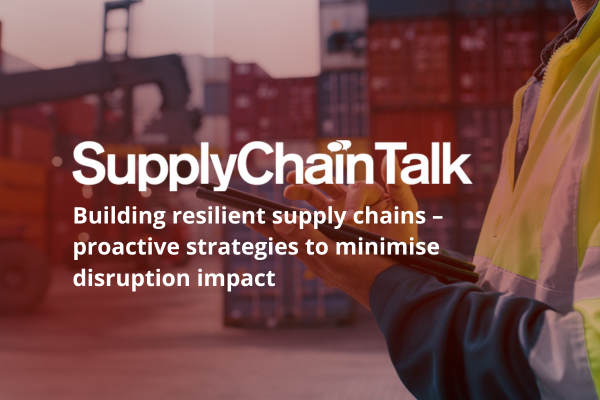War, covid and contract disputes

As the pandemic recedes and war in Ukraine continues, Miles Robinson and Jonathan Cohen at Mayer Brown explore the contractual and supply chain issues that businesses need to be aware of
Extreme events can test the robustness of supply chains and the current Ukraine-Russia crisis is no different.
The war in Ukraine and the imposition of sanctions against Russia is causing further strain to global supply chains which were already under significant stress as a result of the ongoing impact of Covid.
Most UK businesses will (either directly or indirectly) be affected by the war in Ukraine or the sanctions which have been imposed against Russia. Businesses are therefore having to review their supply contracts urgently in order to assess their exposure and consider whether any specific actions are required in order to comply with their contractual obligations and/or protect their position.
Businesses with a direct supply chain exposure to Ukraine may be experiencing supply disruption, due to for example manufacturing restrictions, labour shortages or logistical difficulties associated with transporting goods out of Ukraine.
This, in turn, may mean that those businesses are unable to comply with their own supply obligations, which may result in an exposure to a potential damages claim. Although in some cases it may be possible to source equivalent goods from an alternative supplier, the terms on which that alternative supply is sourced may be less favourable than the terms agreed with the original supplier or the alternative supplier may be unable to match the same specification.
Likewise, UK businesses which transact directly with Russian counterparties now need to consider how they may be impacted by the sanctions packages which are currently in place and any additional sanctions packages that are introduced in the future, in order to ensure they are not breaching sanctions rules when doing so.
In some cases, this may be relatively straightforward. For example, where a particular entity or particular goods are expressly sanctioned, it should be clear that they cannot be supplied to Russian entities.
However, the position may be less clear where, for example, an entity is not itself sanctioned but is part of a complex corporate structure in which other entities are sanctioned, or where the product being supplied is not sanctioned but can be used as a key component in a sanctioned product. In such cases, it is important that businesses take appropriate legal advice and, where appropriate, seek further guidance from the relevant sanctions authorities.
Even where UK businesses do not have a direct exposure to Ukraine or Russia, they are still likely to experience the economic effects of the conflict. Rising costs of energy have caused manufacturing and logistics costs to increase significantly, which may result in contracts being less profitable or, in some cases, loss making.
There, are of course, steps that parties can take and contractual protections that can be put in place in order to mitigate the effects of the present crisis, but the ability to do so will depend on the specific terms of the contract. These include:
- Force majeure: where a party is unable to supply its customer as a result of the conflict in Ukraine, it may be able to rely on force majeure. A force majeure clause may entitle a party to suspend performance whilst the force majeure event continues and potentially terminate the contract if the force majeure event continues for a prolonged period of time.
- Price escalation clauses: a price escalation clause is a mechanism to prevent a contract becoming too financially onerous on one or both parties. They are intended to reflect (and respond to) changing market conditions – particularly over the course of a long term contract. Where a contract contains a price escalation clause, it may be possible for a party to recover the increased costs of raw materials, energy and transport as part of the overall contract price.
- Sanctions related compliance clauses: Sanctions compliance clauses are intended to prevent or limit trade with entities which are subject to global sanctions regimes. Where a sanctions clause is engaged, it may be possible to suspend or terminate the contract to avoid having to continue to perform contractual obligations in breach of relevant sanctions laws.
- Material adverse change (or effect) clauses: MAC/MAE clauses are designed to protect parties against the risk that an unforeseen event or circumstance may arise, which has a materially adverse impact on one or more of the contracting parties. Where it can be shown that a MAC or MAE has occurred, it may entitle a party to terminate the contract.
The Ukraine-Russia crisis shows no sign of abating and supply chain disruption is likely to continue for at least the medium term. Therefore businesses will need to consider carefully how they are able to protect themselves from the ongoing effects.
In relation to existing contracts, parties should review their agreements to assess, from a supply chain perspective, their potential exposure to the war in Ukraine and to Russian sanctions.
In parallel, parties up and down the supply chain should continue to communicate with one another so that any anticipated supply disruptions and shortages can be managed commercially, in order to avoid a potential dispute escalating unnecessarily.
In relation to new contracts, UK businesses should consider carefully what contractual protections they require going forward to ensure that they have sufficient flexibility to navigate future supply chain disruption.
Parties should also ensure that they conduct thorough due diligence of their direct and indirect supply chain partners in order to ensure that they are robust, and that by doing business with them they will not in advertently breach relevant sanctions laws.
Miles Robinson is a partner and Jonathan Cohen a senior associate in the litigation team at Mayer Brown
Main image courtesy of iStockPhoto.com

Business Reporter Team
Most Viewed
Winston House, 3rd Floor, Units 306-309, 2-4 Dollis Park, London, N3 1HF
23-29 Hendon Lane, London, N3 1RT
020 8349 4363
© 2025, Lyonsdown Limited. Business Reporter® is a registered trademark of Lyonsdown Ltd. VAT registration number: 830519543





